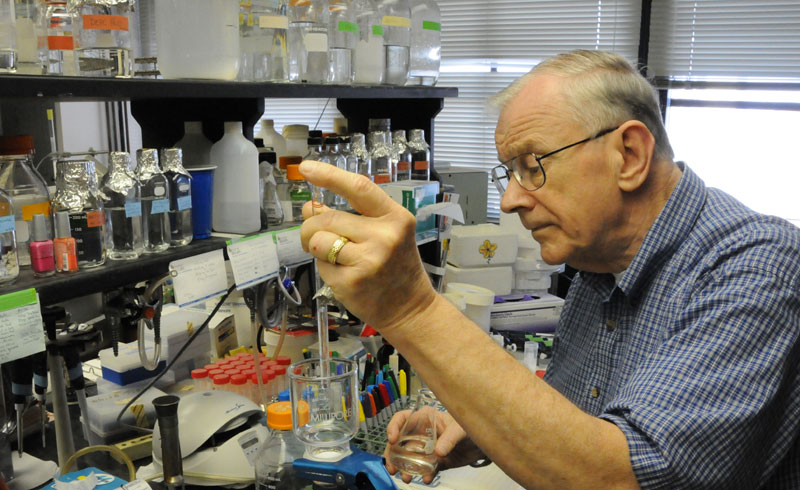Apple trees and chimpanzees normally live about 45 years. But the National Institutes of Health doesn’t usually fund the work of any single researcher for that long. UTHSC’s Dr. Terry Cooper has defied the odds. At the conclusion of his current grant, he will have had 45 years of continuous NIH funding. Cooper and his team research cell regulation. His latest grant is for $1.4 million.
Pharmacy Placement
Pharmacy is a growth field, and 86 percent of last spring’s College of Pharmacy graduates had jobs even before graduation. Forty-five percent said they were going to work in chain pharmacies, 5 percent in institutional pharmacies, and just 2 percent in independent pharmacies. Others planned to embark on residency training. According to the Bureau of Labor Statistics, the field is expected to grow by 25.4 percent in this decade.
Combat Eye Injuries
Improvised explosive devices have devastated the lives of many soldiers in combat. Eye damage caused by blast injuries may sometimes be made worse when the injured have specific types of genes. Dr. Eldon Geisert is working to pinpoint these genetic markers and pave the way for better treatment for injured soldiers. His work is funded by a $1 million grant from the U.S. Army Medical Research Acquisition Activity. Geisert, a professor in ophthalmology and anatomy and neurobiology, says, “Helping those injured in the defense of our country is a true privilege.”
411 on Sex
UTHSC and the Shelby County Health Department hosted about 200 parents and teens at a forum providing education about safe sex and ways to talk about it. UTHSC students talked to teens in small groups, and parents met with staff and physicians to learn better ways to support their children and create a dialogue about sexual health. “The 411 on Sex” was held for the second year last fall.



